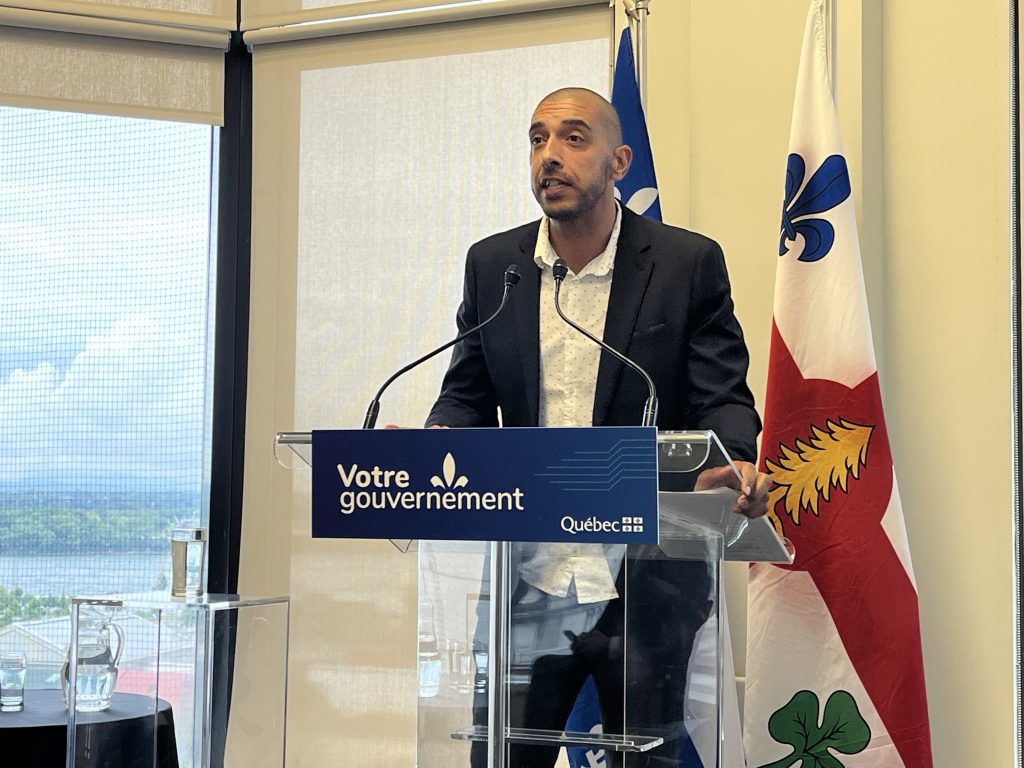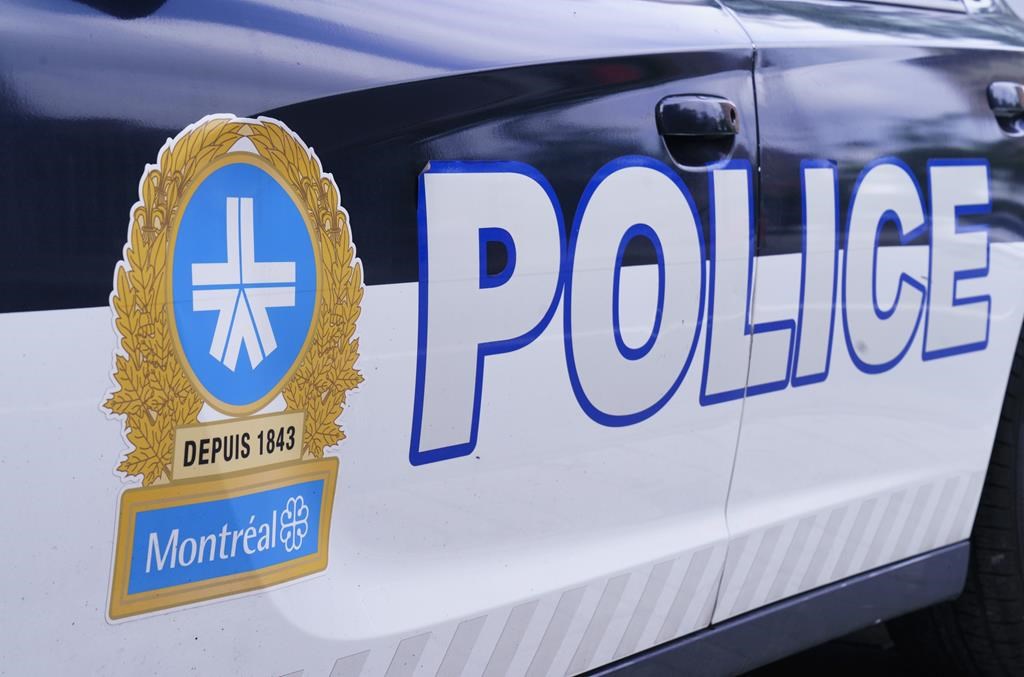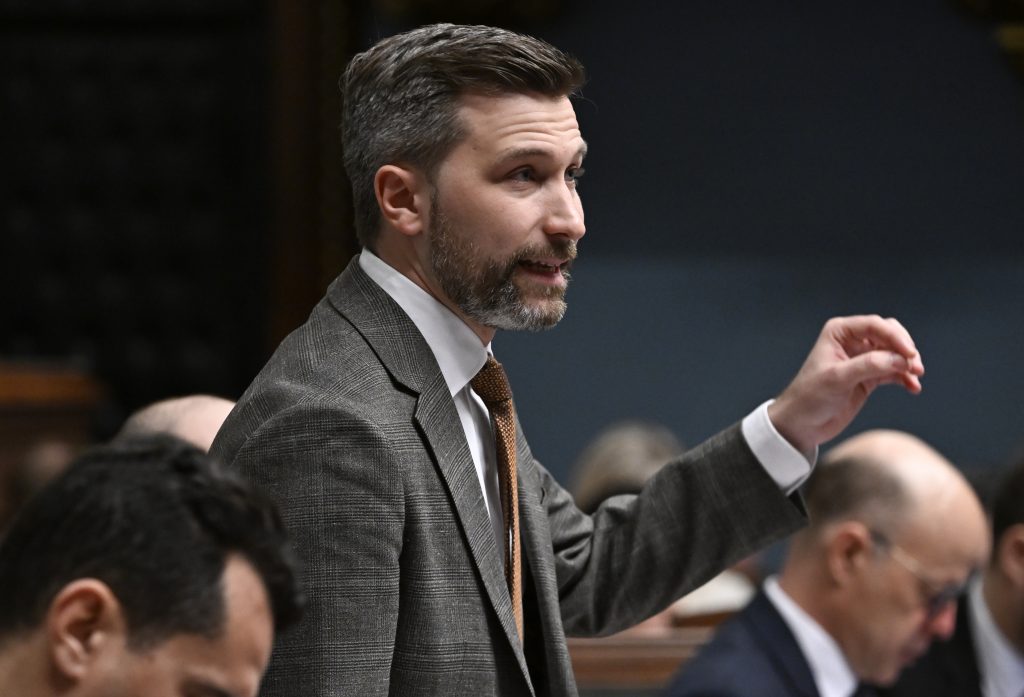Quebec government adds more funding to help fight gun violence in Montreal
Posted September 18, 2023 12:57 pm.
Last Updated September 18, 2023 6:33 pm.
Quebec public security minister François Bonnardel announced new funding on Monday to help fight gun violence in Montreal – providing $1.35 million for the deployment and coordination of the Prévenir et intervenir sur les violences observées sur le territoire (PIVOT) project. The City of Montreal will contribute $513,000.
“It’s so much important, so much important to find a balance between repression and deterrence,” said Bonnardel. “To prevent these violence coming from young children, young child, age 15, 16, 17, it’s quite important.”
“It’s based on offering alternatives, offering services. So some of these youth, they need a job. They need to see that our society is ready to give them the opportunity,” said René-André Brisebois, a researcher at the Institut universitaire Jeunes en difficulté of the CIUSSS du Centre-Sud-de-l’Île-de-Montréal.
It’s a project aimed at preventing gun violence in Montreal by helping youth that are at risk of committing an act of violence, to encourage them to choose a different path.
The announcement was made by Bonnardel, in the company of Josefina Blanco, who is responsible for diversity, social inclusion, homelessness and universal accessibility on the Executive Committee of the City of Montreal, Alain Vaillancourt, responsible for public safety on the Executive Committee of the City of Montreal, Jacques Couillard, President and Assistant Director General of the Centre intégré universitaire de santé et de services sociaux (CIUSSS) du Centre-Sud-de-l’Île-de-Montréal and René-André Brisebois, intervener and researcher at the Institut universitaire Jeunes en difficulté of the CIUSSS du Centre-Sud-de-l’Île-de-Montréal.
An initiative of the Comité stratégique en sécurité urbaine de Montréal (CoSSUM), the PIVOT project combines prevention and repression, and is based on an approach that has been tried and tested in Scotland and the United States. It aims to prevent gun violence in Montreal by intervening with individuals at risk of committing an act of violence, to encourage them to choose a different path. The program’s actions are based on three inseparable pillars:
- positive support, specialized services and solutions for those responsible for violent crime;
- clear communication of the consequences of violence, and swift and certain enforcement of those consequences in the event of an offence;
- a collective will to put an end to violence.
The Institut universitaire Jeunes en difficulté (IUJD) of CIUSSS du Centre-Sud-de-l’Île-de-Montréal will coordinate the project. It will work closely with the communities concerned to implement PIVOT in a way that respects local realities.
“We need to work with the like youth workers that that that work with the the juvenile delinquent. The same thing with the correctional services,” said René-André Brisebois, adding, “if they have young guys that want to leave the gang or the violence, they have a solution. They have an opportunity. So that’s what we’re trying to do.”
Ted Rutland, associate professor in the department of Geography, Planning and Environment at Concordia University, says that the funding for this work is a paltry amount.
“It’s unfortunately a continuation of the established approach to gun violence in Montreal, which is based overwhelmingly on police repression with very small amounts of money going to community organizations,” said Rutland, adding, “more specifically, I can say that we’re talking about $1.8 million over three years. That’s $600,000 per year, which is very little money.”

René-André Brisebois
Researcher at the Institut universitaire Jeunes en difficulté of the CIUSSS du Centre-Sud-de-l’Île-de-Montréal at an announcement by the Quebec government for more funding to help fight gun violence in Montreal. Sept. 18, 2023. (CREDIT: Gareth Madoc-Jones, CityNews Image)
“Countering armed violence by supporting innovative projects like PIVOT is a priority for me and for our government. I’d like to thank all the partners who made it possible. In addition to helping reduce gun violence in Montreal, it will foster better relations between the police and the community. This approach, which has proved its worth elsewhere in the world, ensures a balance between prevention and repression. I’m convinced of its effectiveness and applicability in our city,” said Bonnardel in a press release.
Montreal police announced in August that armed violence had been trending down in 2023 in relation to the previous two years. They reported that between January 1 and July 31, 2023, 57 shootings were recorded down from 91 in 2022; a drop of 38 per cent from the previous year. The SPVM recorded 128 shooting in Montreal in 2022 and 144 in 2021. In June, SPVM police inspector David Shane said they have intensified their efforts in the fight against armed violence with measures such as well as prevention, criminal investigations, intelligence and police visibility as well by forming teams called “collectives” that target and put pressure on “subjects exhibiting high-risk behaviors related to armed violence.” The goal, said Shane, is to deter individuals from committing violent acts.
The city of Montreal also launched a gun violence prevention support line in June to offer a free and confidential service with a trained counsellor at 514-653-6363.
“We’re proud to help set up the PIVOT project, a new joint initiative between the health network, community organizations and the SPVM that combines prevention, mobilization and intervention. The aim is to support those most at risk of taking a criminal path and committing acts of gun violence with an adapted response. This new initiative will increase support and accompaniment services in communities affected by violence. By pooling our efforts, we can make a real difference in preventing violence in our communities,” explained Blanco, in a press release.
“All of this money that we’re giving to the police and community organizations is increasing pressure and surveillance on youth that the police think might one day be involved in gun violence. But there’s no evidence to back that up. And we will never have evidence because we’re talking about intervening in the lives of people, often arresting them for minor crimes and sending them to prison. All on the assumption that we know that someday they’ll be involved in gun violence,” said Rutland.



